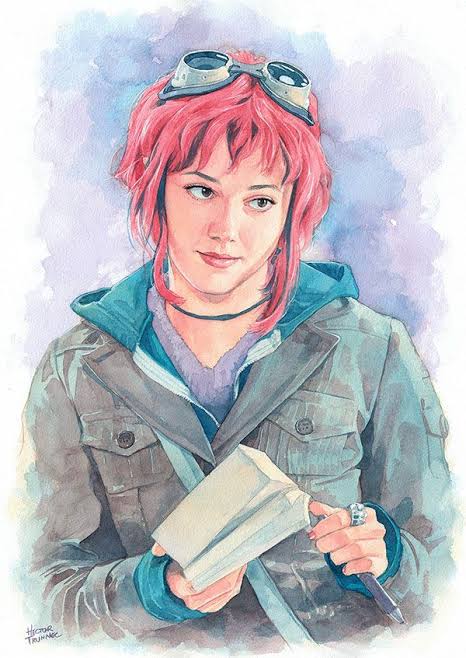
Rewind to the year 2005- women in movies had a new stereotype, of teaching, not just men, but even gorillas (see: King Kong) how to unironically live, laugh, and love. Such female characters compelled Nathan Rabin, a fed-up movie critic who perhaps didn’t want a bubblier-than-champagne woman to teach him how to live life just yet, to call out these unassuming, life-changing second leads. He called them “Manic Pixie Dream Girls” (MPDG).
According to him, these women existed solely in the minds of “brooding directors” (mostly men, who blithely assumed that it’s the woman’s job, nay privilege, to teach an inexplicably brooding man how to embrace life and adventure).
Before I continue, I want to get one thing straight: I’m not a brooding, ‘soulful’ man with a one-dimensional perception of female leads. I love cinema, and I intend to be the unsolicited saviour and defendant of my favourite storyteller, Imtiaz Ali, and one of my favourite actresses, Zooey Deschanel – two individuals who are key to the discussion of the MPDG.
It’s said that nearly 80% of the audience sided with Tom in ‘500 Days Of Summer’, while even the actor, Joseph Gordon-Levitt, calls this outright ridiculous. Where does this anger with Summer stem from? The fact that she didn’t want to teach Tom how to live?
Is it simply because your fantasies were shattered over the course of 2 hours, and you left the movie theatre feeling incomplete without a rosy-pink romantic ending?
Or is it because she is the only MPDG to have grown out of that trope during the movie itself?
The problem with this trope lies in the question, ‘why does it exist in the first place?’ Why does the cheerful, chirpy girl choose a stuck-up, boring man and choose to change him? Worse still, why do they get a happy ending?
The answer lies in one simple word: “Representation”. In 2020, only a measly 21% of movie directors and scriptwriters were female. This skewed gender ratio allowed the misogynistic school of thought of the MPDG in rom-coms to run rampant.
The men who have this unshakeable notion of women, as they do of love, of happiness, of sorrow, of heartbreak, dominate the representation of our culture and era and it’s tainting a fictional world that’ll exist in posterity for decades to come. For me, cinema has always been a way to experience eras long-gone that are now only a Netflix search away, and it pains me to think that some decades down the line, people will think of Geet from ‘Jab We Met’, Tara from ‘Tamasha’, and Summer from ‘500 Days of Summer’ (partly) as the archetypal female characters of our generation.
To call out this trope is one thing and to rectify it is another. We don’t hold a lot of power as individuals, but individually, we do hold fragments of it, and together we might just succeed. The glorification of MPDGs and their full-of-potential men needs to stop.
We have to realize that Laila from ‘Zindagi Na Milegi Dobara’ was used as a tool for Arjun’s personal development, and Clementine from ‘Eternal Sunshine Of The Spotless Mind’ really didn’t want to heal us and just wanted her peace of mind.
My point is, accept real cinema. Accept the discomfort in your chest while watching ‘Masaan’ or the tears pricking your eyes while watching ‘Guzaarish’. Appreciate Sci-Fi, instead of dismissing it by saying you wouldn’t understand it. Even in romance, appreciate real love, like in the ‘Before’ trilogy. Enough lies are floating around, and the misrepresentation of our generation’s women cannot be one of them.
As far as male MPDGs go, look no further than Uncle Ben for Peter Parker. Dying for the personal development of the male lead is peak MPDG behaviour, wouldn’t you agree?
Written by Siddharth Dwivedi for MTTN
Edited by Mihika Antonia Dean for MTTN
Featured image by Hector Trunnec/ Behance
Image is a still from ‘500 Days Of Summer’

Leave a Reply
You must be logged in to post a comment.